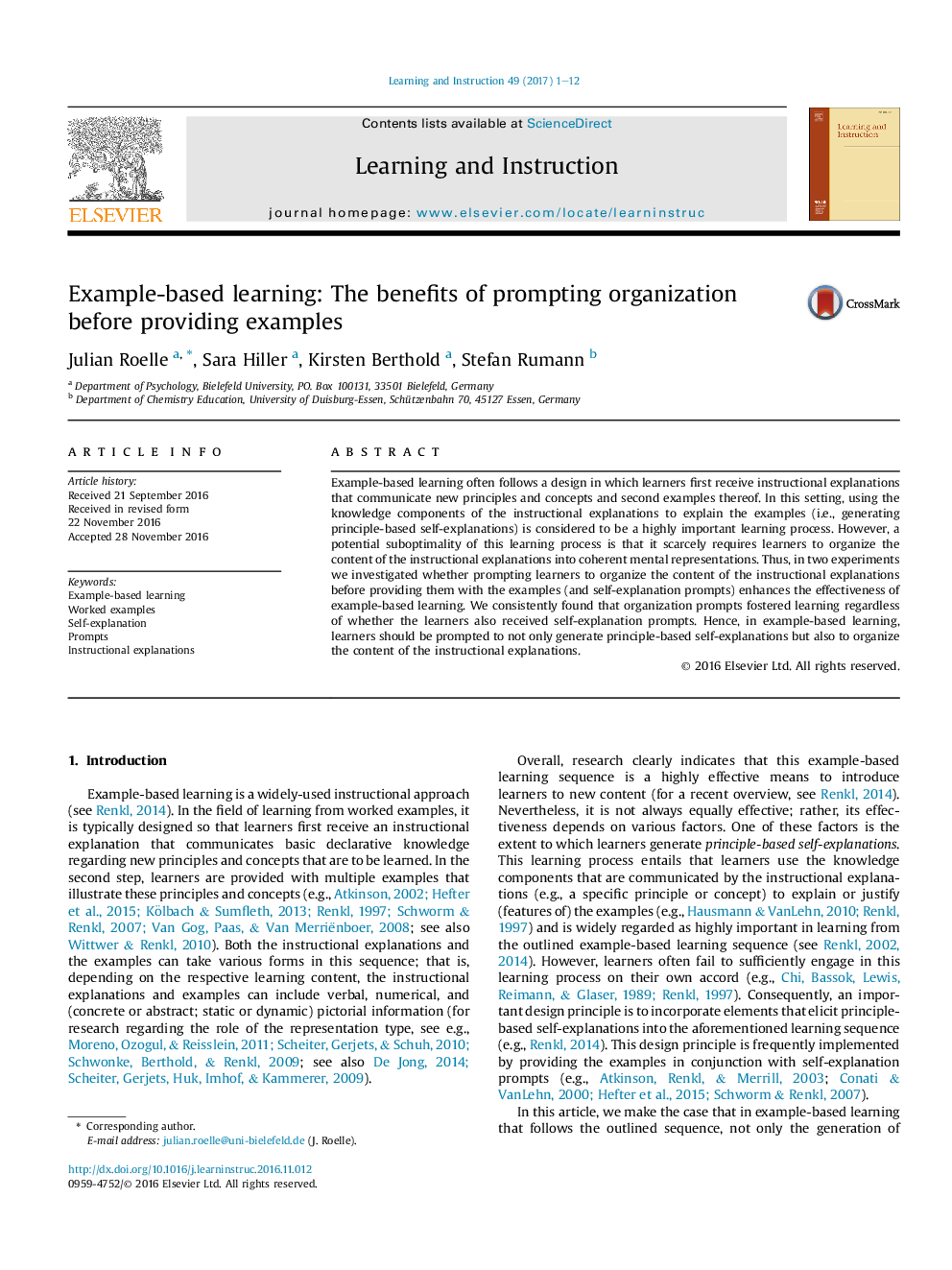| Article ID | Journal | Published Year | Pages | File Type |
|---|---|---|---|---|
| 4940247 | Learning and Instruction | 2017 | 12 Pages |
Abstract
Example-based learning often follows a design in which learners first receive instructional explanations that communicate new principles and concepts and second examples thereof. In this setting, using the knowledge components of the instructional explanations to explain the examples (i.e., generating principle-based self-explanations) is considered to be a highly important learning process. However, a potential suboptimality of this learning process is that it scarcely requires learners to organize the content of the instructional explanations into coherent mental representations. Thus, in two experiments we investigated whether prompting learners to organize the content of the instructional explanations before providing them with the examples (and self-explanation prompts) enhances the effectiveness of example-based learning. We consistently found that organization prompts fostered learning regardless of whether the learners also received self-explanation prompts. Hence, in example-based learning, learners should be prompted to not only generate principle-based self-explanations but also to organize the content of the instructional explanations.
Related Topics
Social Sciences and Humanities
Psychology
Developmental and Educational Psychology
Authors
Julian Roelle, Sara Hiller, Kirsten Berthold, Stefan Rumann,
